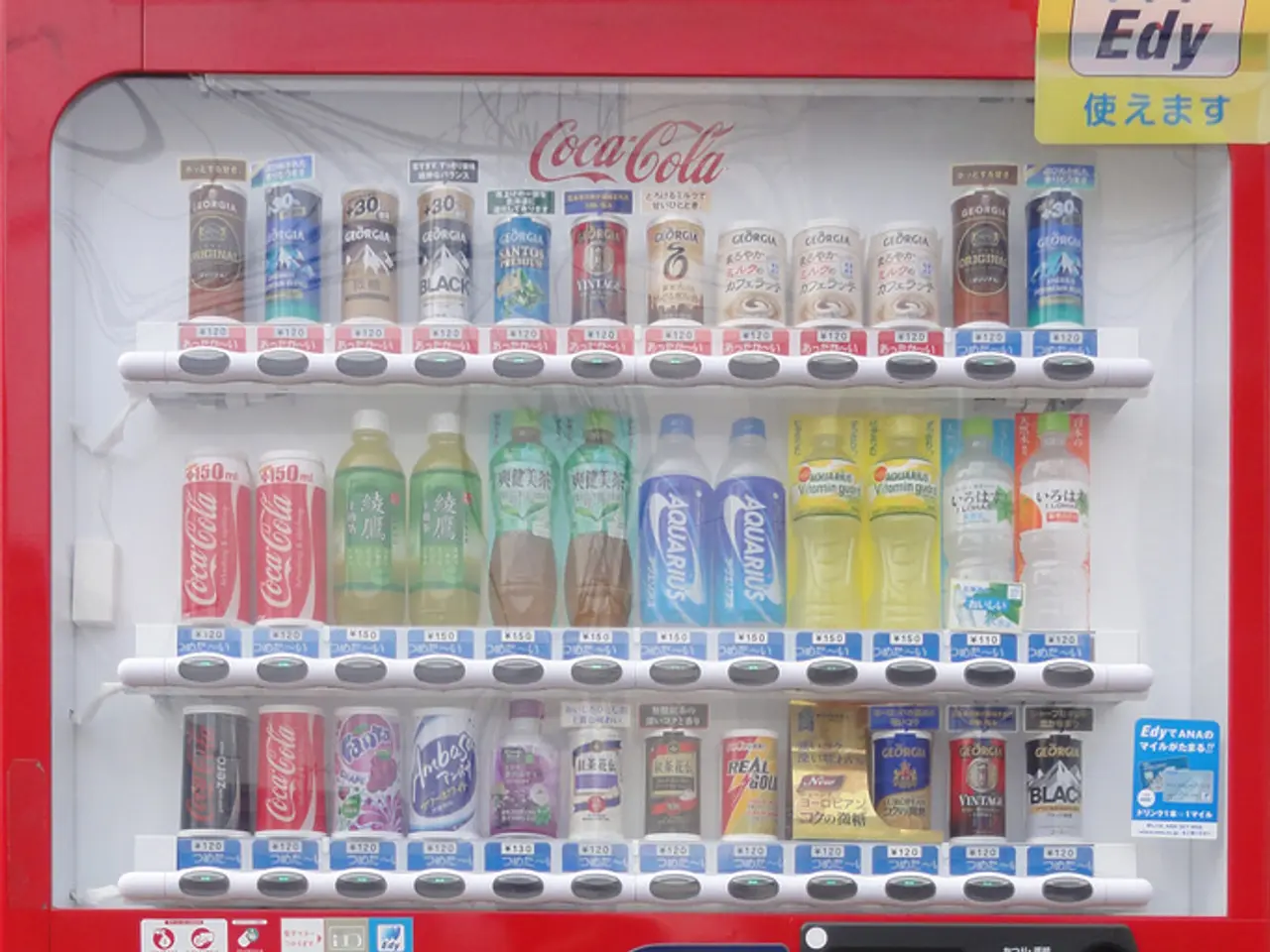Costa Coffee navigates unconventional strategies for U.S. growth expansion
Costa Coffee's U.S. Expansion Focuses on Automated, Customizable Coffee Experiences
Costa Coffee, the London-based coffee chain founded in 1971, is expanding its presence in the United States through a unique approach – nontraditional, automated coffee experiences. At the heart of this strategy is the "Smart Café" concept, large, tall machines capable of preparing customizable espresso-based beverages in about 90 seconds [1][2].
The Smart Café replicates the sensory experience of a coffee shop, with grinding sounds and fresh aromas, but operates with minimal labor costs. Costa also offers a smaller countertop version for spaces where the tall machine won’t fit. These machines are placed in nontraditional venues such as convenience stores, grocery stores, colleges, hotels, and other locations, where Costa only requires that the host provide space, keep the machine clean, and supply milk [1][2].
Costa remotely monitors machine performance, ensuring proper functioning and using customer data to tailor beverage options to local preferences. Revenue is shared with the host business, making this a low-barrier, asset-light expansion model. Additionally, Costa is targeting growth through partnerships, such as management contracts with Marriott International to install outlets in hotels across the U.S. [2].
This approach marks a shift away from traditional retail cafés to building presence "away from home" by leveraging technology to meet the convenience and customization preferences of American consumers, particularly focusing on the growing cold beverage segment [1][2].
Cold beverages are particularly important in the U.S. market, and the Smart Café is targeted at generating business through espresso beverages. Customers can customize their beverages with the Smart Café, choosing from 200 options. The Smart Café machine can make both hot and cold beverages [1].
Costa Coffee currently has about 350 Smart Café devices in place, and by 2018, the company had 4,000 locations and was valued at $5.1 billion [2]. Costa Coffee's presence in the U.S. will primarily be through these Smart Café devices. Costa Coffee has no immediate plans to join the traditional coffee shop business in the U.S. [2].
Interestingly, Costa Coffee was sold to Whitbread in 1995, which expanded the chain rapidly. However, Costa was later acquired by Coca-Cola in 2018. Currently, Coca-Cola is reportedly exploring a potential sale of Costa amid operational challenges, but this does not negate the current U.S. expansion strategy based on Smart Café machines [3][4][5].
References:
[1] Costa Coffee (2021). Costa Coffee USA. Retrieved from https://www.costa.co.uk/us
[2] McMillan, S. (2018). Costa Coffee is coming to the U.S. with a new automated coffee machine. Retrieved from https://www.cnbc.com/2018/09/13/costa-coffee-is-coming-to-the-u-s-with-a-new-automated-coffee-machine.html
[3] Lennon, M. (2020). Coca-Cola may sell Costa Coffee for $4.2 billion, report says. Retrieved from https://www.cnbc.com/2020/06/16/coca-cola-may-sell-costa-coffee-for-42-billion-report-says.html
[4] Fernandez, J. (2020). Coca-Cola's Costa Coffee unit may be up for sale for nearly $4 billion. Retrieved from https://www.reuters.com/article/us-coca-cola-costa-sale-idUSKBN23W28F
[5] Costa Coffee (2021). Costa Coffee. Retrieved from https://en.wikipedia.org/wiki/Costa_Coffee
In the realm of general-news, Costa Coffee's U.S. expansion strategy involves the deployment of Smart Café devices in nontraditional venues like stores and hotels, aiming to widen its reach beyond conventional coffee shops.
Financially, this asset-light approach to expansion allows Costa Coffee to share revenue with hosts and leverage weather trends to offer customized beverages that cater to local preferences, thereby optimizing their finance in the restaurant industry.








